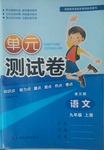题目内容
227. Christopher Marlore (1564—95) was a writer belonging to ______of Shakespeare.
A. the period B. a time C. an age D. Day
A

 阳光试卷单元测试卷系列答案
阳光试卷单元测试卷系列答案LONDON: The Edinburgh Festival, the biggest arts festival of its kind in the world, got under way in the Scotland capital on Sunday with a concert that included Hector Berlionz's To Deum, under the direction of Christoph von Dohnanyi.
The festival, which runs until August 31 this year, includes as its high points Peter Stein’s staging of Wagner’s Parsifal, with Claudio Abbado directing the Gustav Mahler youth orchestra. The concert programme includes American pianist Richard Goode, bass baritone Thomas Quasthoff and violinist Christian Tetzlaff. New to the programmes this year will be 25 late evening classical music concerts.
Earlier this month, the Edinburgh Fringe Festival, the largest show-case in the world for performance art, officially got under way with theatre, dance, poetry and music presentations.
Many of the fringe artists, who can enter the fringe festival upon payment of a small fee, were inspired this year by the event of September 11.
Thousands of people flock to Edinburgh from around the world during the festival, which is over 50 years old. It aims to promote and encourage arts and to reflect international culture. It consists of various dance, music, opera, and theatre presentation taking place across the city during the three-week run.
【小题1】Who will perform in the concert on Sunday?
| A.Hector Berlionz | B.Christoph von Dohnanyi |
| C.Claudio Abbado | D.Christian Tetzlaff |
| A.August 10. | B.August 15. |
| C.August 31. | D.September 11. |
| A.Youth orchestra’s performances. |
| B.Poetry and music presentations. |
| C.Late evening classical music concerts. |
| D.Performances of American pianists and violinists. |
| A.It is the only festival of its kind in the world. |
| B.The artists who want to take part in the festival have to pay a small amount of money. |
| C.People who attend the festival are all from Scotland. |
| D.It is actually a dance festival. |
LONDON: The Edinburgh Festival, the biggest arts festival of its kind in the world, got under way in the Scotland capital on Sunday with a concert that included Hector Berlionz's To Deum, under the direction of Christoph von Dohnanyi.
The festival, which runs until August 31 this year, includes as its high points Peter Stein’s staging of Wagner’s Parsifal, with Claudio Abbado directing the Gustav Mahler youth orchestra. The concert programme includes American pianist Richard Goode, bass baritone Thomas Quasthoff and violinist Christian Tetzlaff. New to the programmes this year will be 25 late evening classical music concerts.
Earlier this month, the Edinburgh Fringe Festival, the largest show-case in the world for performance art, officially got under way with theatre, dance, poetry and music presentations.
Many of the fringe artists, who can enter the fringe festival upon payment of a small fee, were inspired this year by the event of September 11.
Thousands of people flock to Edinburgh from around the world during the festival, which is over 50 years old. It aims to promote and encourage arts and to reflect international culture. It consists of various dance, music, opera, and theatre presentation taking place across the city during the three-week run.
1.Who will perform in the concert on Sunday?
|
A.Hector Berlionz |
B.Christoph von Dohnanyi |
|
C.Claudio Abbado |
D.Christian Tetzlaff |
2.When did the Edinburgh Festival begin?
|
A.August 10. |
B.August 15. |
|
C.August 31. |
D.September 11. |
3. What did the Edinburgh Festival never have before?
|
A.Youth orchestra’s performances. |
|
B.Poetry and music presentations. |
|
C.Late evening classical music concerts. |
|
D.Performances of American pianists and violinists. |
4.Which of the following statements about the Edinburgh Festival is true?
|
A.It is the only festival of its kind in the world. |
|
B.The artists who want to take part in the festival have to pay a small amount of money. |
|
C.People who attend the festival are all from Scotland. |
|
D.It is actually a dance festival. |
 Her parents thought she was too young for the violin, and persuaded her to start on the piano. But Anne-Sophie has always had a mind of her own. “I longed to play the violin,” she says, “It seemed to me a much more interesting instrument.” After six months, her parents gave in.
Her parents thought she was too young for the violin, and persuaded her to start on the piano. But Anne-Sophie has always had a mind of her own. “I longed to play the violin,” she says, “It seemed to me a much more interesting instrument.” After six months, her parents gave in.